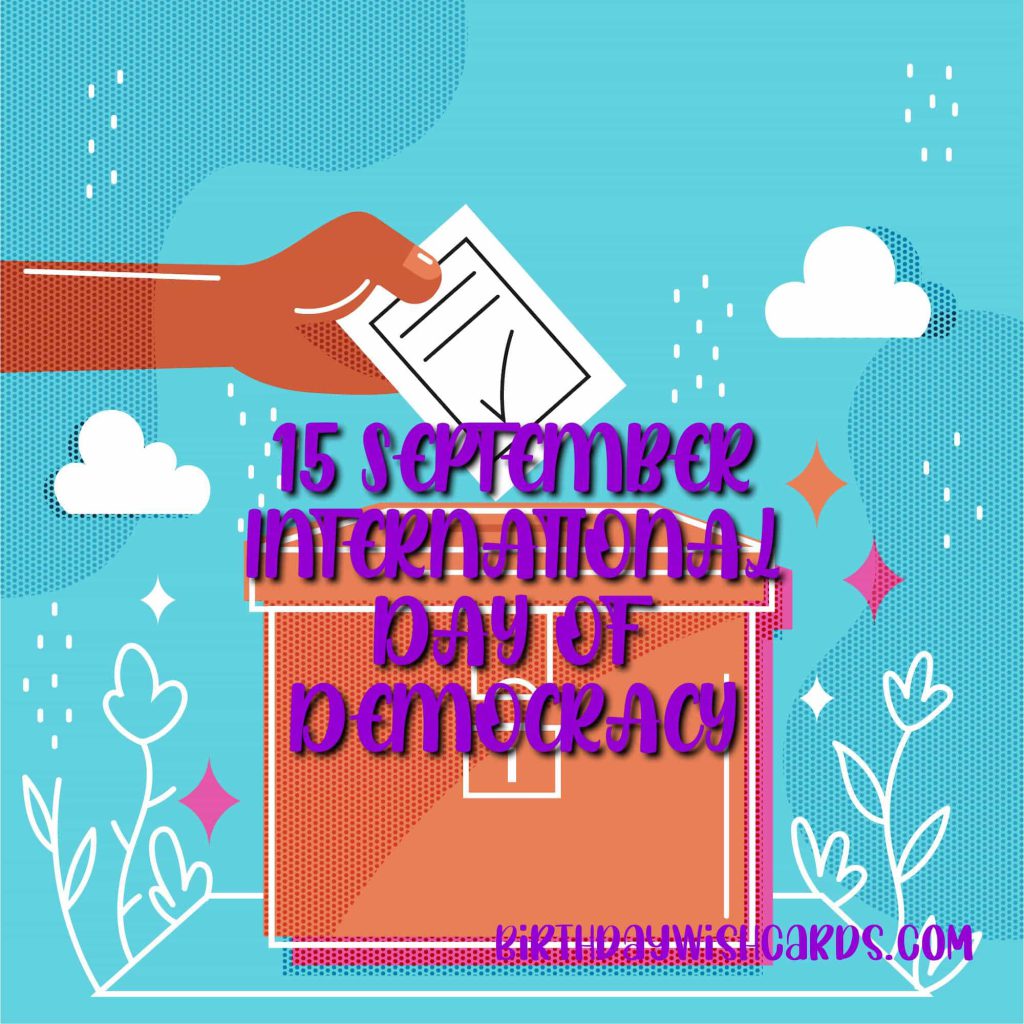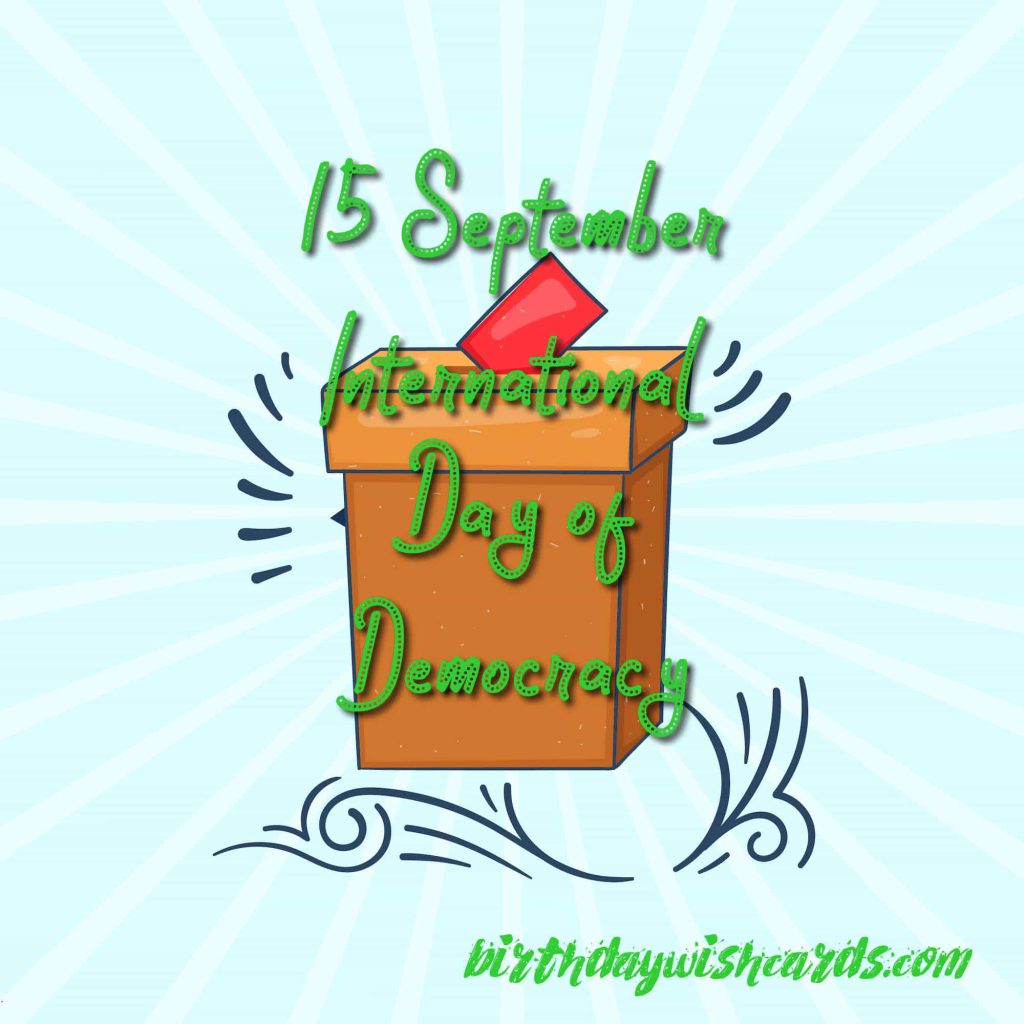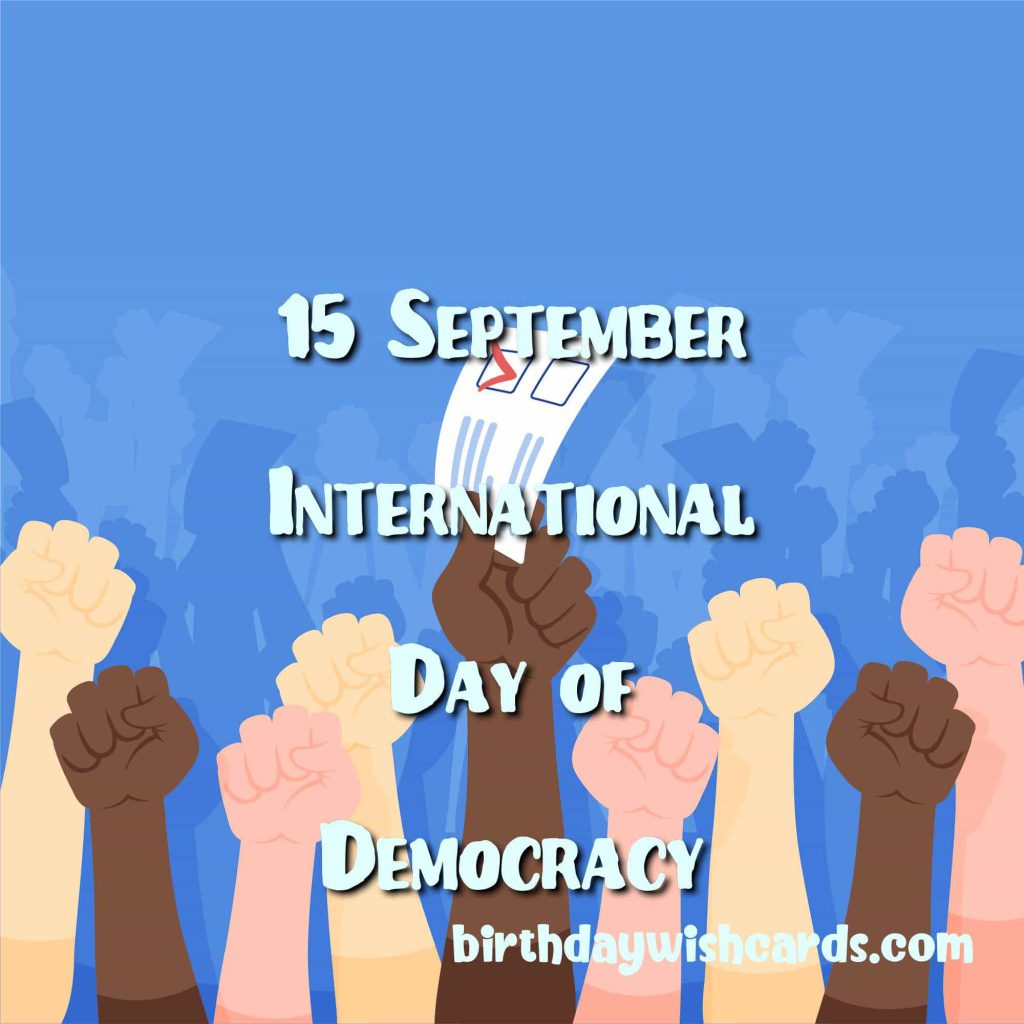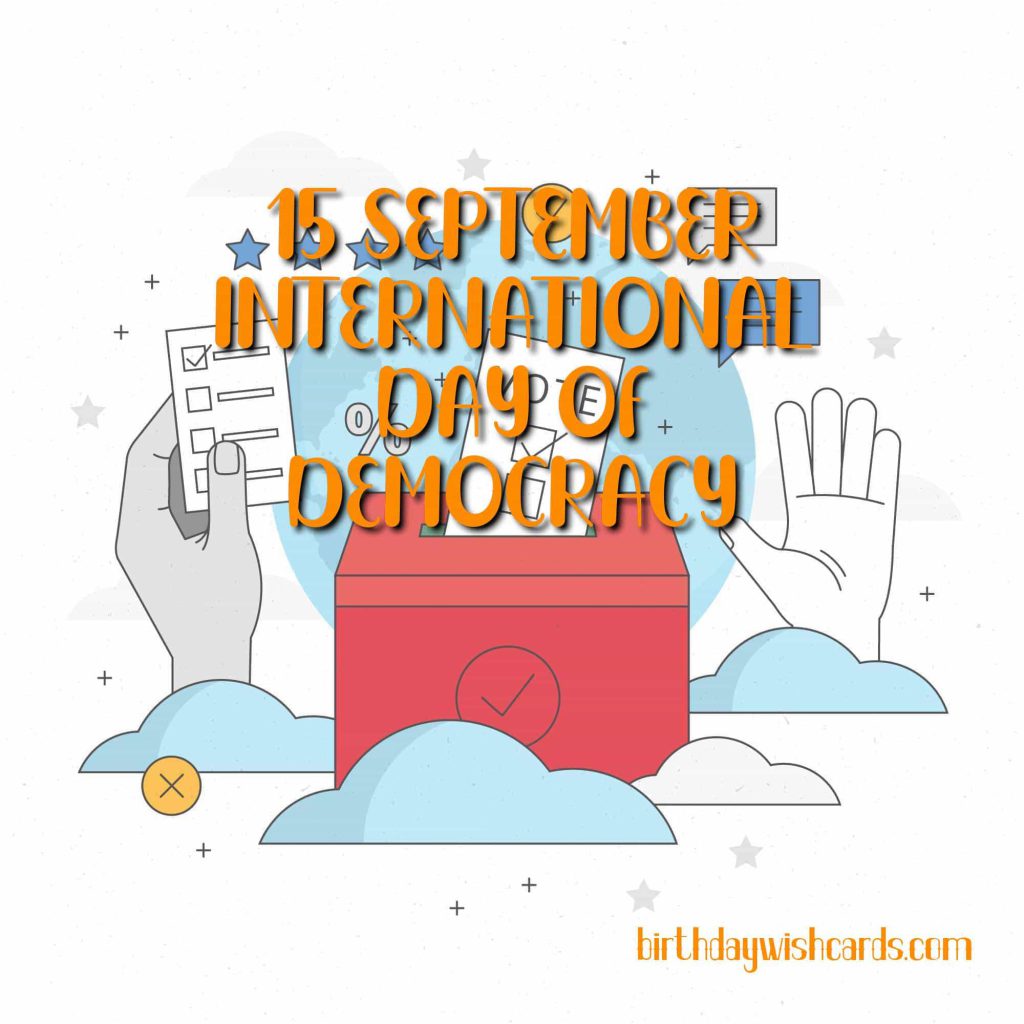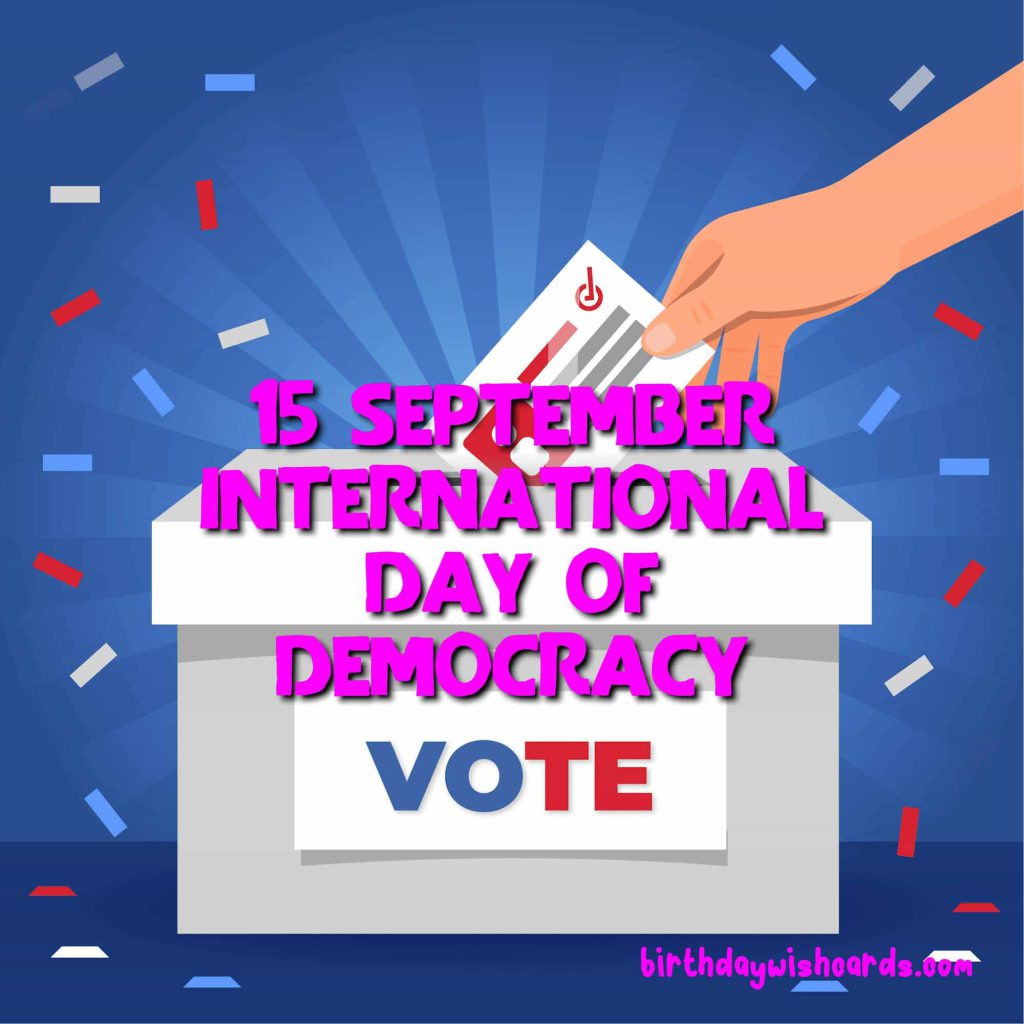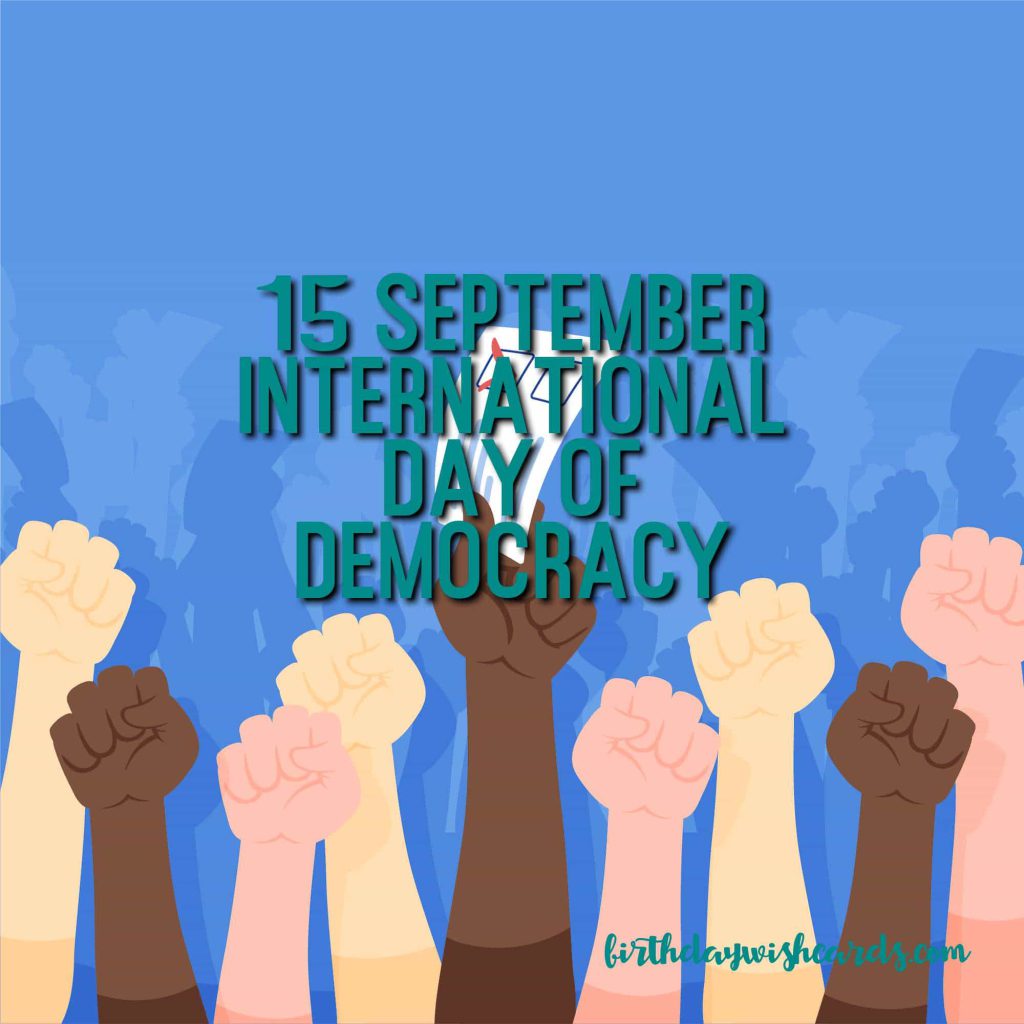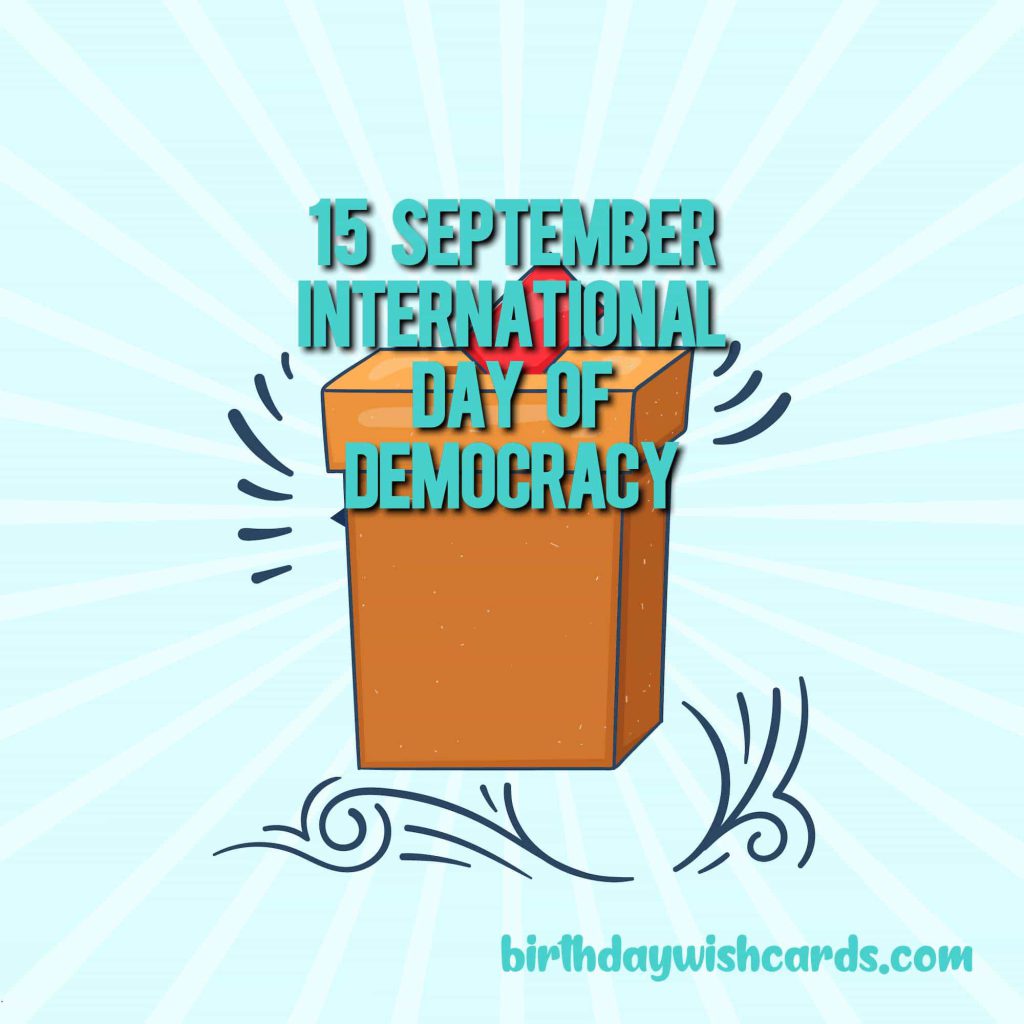
15 September: International Day of Democracy
Declaration and History
The International Day of Democracy is observed worldwide each year on 15 September. This day was officially established by a United Nations General Assembly resolution in 2007, calling on governments everywhere to strengthen and uphold democratic governance.
The roots of democracy can be traced back to ancient Greece, particularly Athens. The Athenian democracy—often attributed to Cleisthenes, known as “The Father of Democracy”—endured for nearly two centuries. This early model of direct democracy laid the groundwork for today’s representative systems, standing as one of ancient Greece’s most influential legacies.
The Inter-Parliamentary Union (IPU) plays a central role in promoting the International Day of Democracy. The IPU encourages its member parliaments to mark the day through a variety of events and activities. Since the inaugural celebration in 2008, hundreds of parliamentary initiatives have taken place globally, including photo competitions, educational workshops for children, televised debates, radio call-in shows, and meetings with civil society organizations.
The Role of Parliaments and the COVID-19 Crisis
The International Day of Democracy offers an important opportunity to reflect on the state of democracy around the world. Each year, a specific theme highlights key aspects of democratic governance. Past themes have focused on strengthening democratic processes, advancing the 2030 Agenda for Sustainable Development, promoting citizen participation, fostering inclusiveness and dialogue, ensuring accountability, and encouraging political tolerance.
Our support for this day is rooted in the belief that democracy thrives on the active participation of all citizens. The day also recognizes the vital role of parliaments in delivering justice, peace, development, and the protection of human rights.
The COVID-19 pandemic presented unprecedented social, political, and legal challenges worldwide. As governments enacted emergency measures to address the crisis, it became essential to maintain the rule of law, uphold international legal standards, and protect fundamental rights such as access to justice, fair treatment, and due process. Democracies were called upon to balance urgent responses with the safeguarding of citizens’ rights and freedoms.
The Importance of Democracy
The International Day of Democracy is a time to reflect on the global state of democratic governance. Democracy is both a process and a goal. Achieving genuine democracy requires the commitment and cooperation of the international community, national governments, civil society, and individuals. Only through collective effort can democracy become a reality for all people, everywhere.
Core democratic values include freedom, respect for human rights, and the principle of holding regular, genuine elections based on universal suffrage. These values are fundamental to democracy, providing the environment necessary for the protection and fulfillment of human rights. They are enshrined in the Universal Declaration of Human Rights and further elaborated in the International Covenant on Civil and Political Rights, which guarantees the political rights and civil liberties essential to functioning democracies.
Democracy and Human Rights
The intrinsic link between democracy and human rights is clearly articulated in Article 21(3) of the Universal Declaration of Human Rights, which states:
“The will of the people shall be the basis of the authority of government; this will shall be expressed in periodic and genuine elections which shall be by universal and equal suffrage and shall be held by secret vote or by equivalent free voting procedures.”
This principle underscores the democratic ideal that governments derive their legitimacy from the consent of the governed, expressed through free and fair elections accessible to all eligible citizens.


